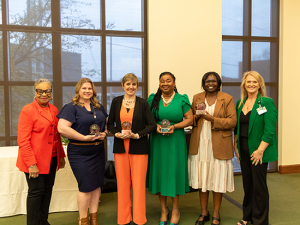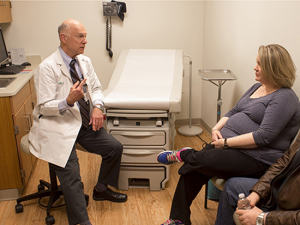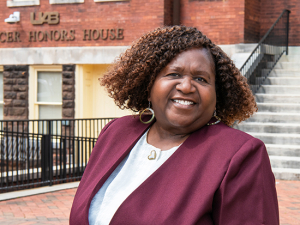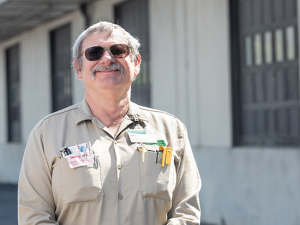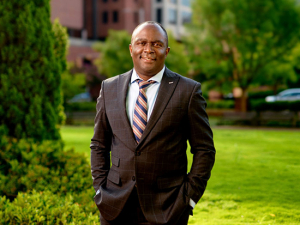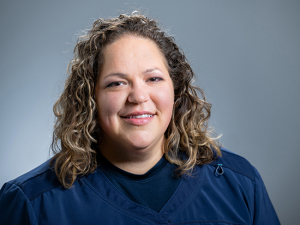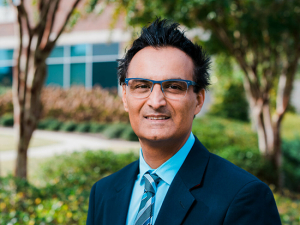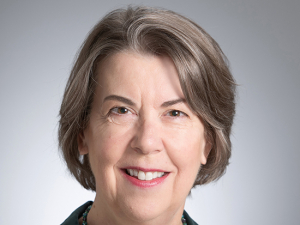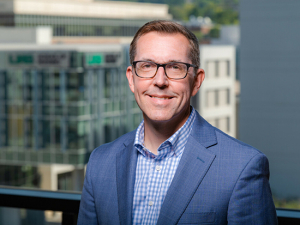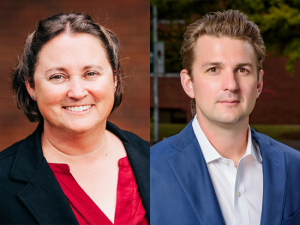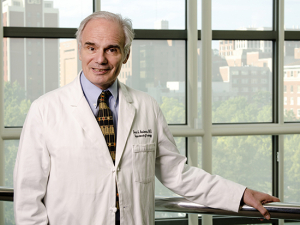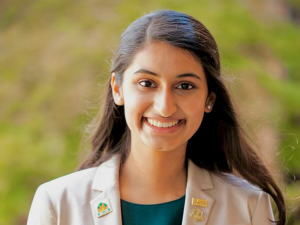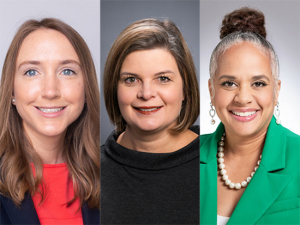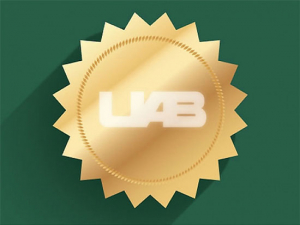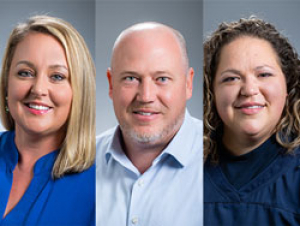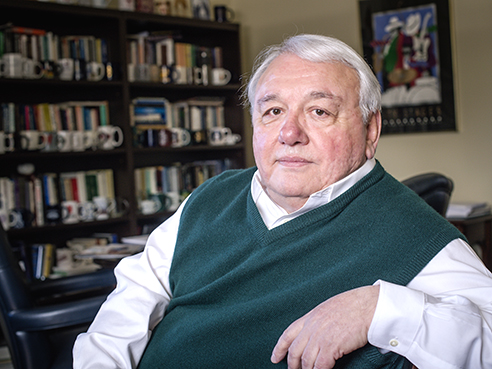 Bob Hernandez, DrPHBob Hernandez, DrPH, never planned to spend 45 years in one organization. He’d watched his father, a civil engineer, work for 40 years in the Corps of Engineers, at one point overseeing flood control from Memphis, Tennessee, to New Orleans.
Bob Hernandez, DrPHBob Hernandez, DrPH, never planned to spend 45 years in one organization. He’d watched his father, a civil engineer, work for 40 years in the Corps of Engineers, at one point overseeing flood control from Memphis, Tennessee, to New Orleans.
While Hernandez credits his father as being an especially good role model — equal parts “hardworking, soft-spoken, nonjudgmental” and “slow to anger” with “a deep religious faith” — Hernandez said he once believed his father was “too conservative by staying in one place” and missing crucial opportunities to make more money in the private sector.
|
“I have great colleagues within the department, and the leadership at UAB is very progressive. The work environment is so supportive within our unit and within UAB.” |
“I was never going to be like that,” Hernandez said. “Now, I have outlasted his years of service."
This week, Hernandez, a Distinguished Service Professor, senior associate chair for global health and executive doctoral program director for the Department of Health Services Administration, will be honored for his four-and-a-half decades of service to UAB.
Five others will be honored for 40 years of service — Stephen Barnes, Ph.D., professor of pharmacology and toxicology; Suzanne Oparil, M.D., professor in the Division of Cardiovascular Disease; Marjorie Price, Ph.D., associate professor of philosophy; Camellia Thomas, administrative associate in the Comprehensive Cancer Center; and Thomas “Frank” Wilkinson, network engineer for UAB Telecommunication Services.
A list of others being honored for 20 or more years of service also is online.
The first steps
Hernandez’s tenure at UAB didn’t begin with his 1972 appointment as associate director of a planning agency. He first called campus home in 1969 upon enrolling in the master of science in hospital administration program (MHSA), from which he graduated in 1971. The program looked a bit different then than its equivalent today, Hernandez says; the current degree program is a masters in health administration, and more career paths for graduates have opened during the passing decades.
|
“Involvement in other countries leads us to ask ourselves, ‘Why do we do things the way we do them?’ It’s interesting to look at how other systems are organized and what people in other countries value.” |
“When I finished, the graduates went into hospital administration,” he said. “Today, there are a great deal of career options available in health insurance firms, physician practice management, health care consulting and other similar places besides hospital operations.
”After spending several years at UAB and then earning his doctorate from the University of North Carolina at Chapel Hill in 1981, Hernandez saw his return to Birmingham as an opportunity to help expand the MHSA program. An alumnus, he had a unique perspective on ways in which the curriculum could be perfected.
“We have several faculty in the department now who also are alumni of our MSHA or Ph.D. programs,” Hernandez said. “I think we feel a sense of ownership and a desire to make improvements on what we experienced.”
A supportive environment
Before earning his doctorate, Hernandez spent a few post-graduate years in the 1970s working in nonacademic appointments in the then-new School of Optometry under the founding dean, Henry Peters. In the 1980s he settled in the Department of Health Administration, which he has called home ever since. He began as an assistant professor in 1981, advanced to associate professor in 1984 and became a full professor in 1988.
A stint as interim chair in 1994, led to the permanent position the next year for the following five years. He became director of doctoral programs in health services administration in 1999, a position he held until 2016. During that period, he also became director of the executive doctoral program in health services administration and senior associate chair for global health, positions he still holds along with appointments in the Collat School of Business, the Department of Sociology and the School of Public Health.
|
“Studying health care delivery in other countries broadens the perspectives of our graduates and provides them with a way to think about our own system.” |
Hernandez said it’s been easy to continue doing great work over the years at UAB because of the support he receives and overall culture of the academic and health care environment on campus. Despite being recruited to other universities — from institutions in the Pacific Northwest to ones closer to home — in every instance, he’s found reasons to remain in Birmingham.
“I have great colleagues within the department, and the leadership at UAB is very progressive,” he said. “The work environment is so supportive within our unit and within UAB. I am appreciative of having an opportunity to work with others as we try to make improvements in the manner in which health care is delivered.”
Going global
Hernandez was more than halfway into his 45 years of service before he began working internationally about 19 years ago. That decision influenced the trajectory of his career and allowed him to form university partnerships across the globe, in places such as the Ukraine, Armenia, China, the Netherlands and Saudi Arabia.
It was important, he said, to establish his career domestically and contribute to his field before venturing internationally.
|
“I do not want them to copy what I do, but rather use their own talent and interests to build their careers. Just as my father set a high standard, my professional mentors also set a standard for developing others. I am not there yet, but I strive to achieve the standard that they set with each student I am honored to mentor.” |
In the early 1990s, when Armenia was newly independent of the Soviet Union, Hernandez worked with the U. S. Agency for International Development to help move the country from state-run health care to free market systems. It was important, he said, to develop a curriculum appropriate for Armenia and not simply export a U.S.-centric curriculum to them. It was a somewhat-challenging goal, considering the discrepancies between hospital management education standards in the United States and those in in the former Soviet Union.“
We learned that, under the Soviet system, they had a 20-day program for clinicians selected to run hospitals,” he said. “It had one training manual, half of which was devoted to explaining the role of the communist party in running the hospital. We had a lot of training to do, given that the curriculum for accredited health care management graduate programs in the U.S. is two years.”
The work in Armenia extended into Ukraine, where he helped develop a partnership with Bogomolets National Medical University to create a program for health administration. Later, he helped bring UAB’s executive MSHA program to Dammam, Saudi Arabia, in 2013. Now there are more than 60 UAB graduates in Saudi Arabia, he said.
“That country is undergoing incredible changes today as the government restructures how the economy functions and health care is delivered,” Hernandez said. “We are proud of the fact that our graduates are helping shape future change there.”
Understanding the influenceHernandez said he still communicates with his colleagues from those days, and both he and Steve O’Connor, a professor in health administration, both have worked as visiting professors at the American University of Armenia in Yerevan, Armenia.
His international work has proven problematic from time to time. Once, after Ukraine’s Orange Revolution ended in 2005, Hernandez was denied entry to the country due to bureaucratic red tape and made to re-board the Air France airplane returning to Paris. But, overall, he said that keeping UAB involved in the international health care scene essentially is nothing but beneficial for the university.
|
“We have several faculty in the department now who also are alumni of our MSHA or Ph.D. programs. I think we feel a sense of ownership and a desire to make improvements on what we experienced.” |
“When you grow up in the U.S. with a system that is organized in a specific manner, you take for granted certain practices and policies,” he said. “Involvement in other countries leads us to ask ourselves, ‘Why do we do things the way we do them?’ It’s interesting to look at how other systems are organized and what people in other countries value. For example, Article 49 of the Constitution of Ukraine officially guarantees free-of-charge health care to everyone. They are unable to actually provide those services, but politicians are afraid to remove that provision from the constitution — similar to our politicians not addressing gun control at a national level. I value having the opportunity to represent the university in a number of international settings.
”International partnerships also provide UAB opportunities to access experts in other countries, which enables UAB students to study health care delivery elsewhere in the world. UAB has facilitated more than 24 international study trips for groups of its MSHA graduate students. One executive doctoral student, who’d done consulting on Lean — a set of operating philosophies and methods that help reduce waste and waits — and was conducting research on its U.S. outcomes for his dissertation studied health care in Switzerland, where he was able to compare notes with researchers in Europe. A colleague in Barcelona is helping to arrange an upcoming student visit later this semester, Hernandez said.
“Studying health care delivery in other countries broadens the perspectives of our graduates and provides them with a way to think about our own system,” he said.
Passing it on
All of Hernandez’ work has, in a way, been filtered through the role models who influenced him in his career and his personal life. Hernandez’ father, a diligent, tolerant and mild man, “set a standard that was incredibly hard for me to duplicate” when parenting his two children, both grown now. Early on, two UAB faculty pushed Hernandez to pursue a career in academia — a suggestion that obviously took — and a doctoral professor at Chapel Hill provided a professional example Hernandez still strives to follow.
|
Employees with 20 or more years of service will be honored during the annual Service Awards Program luncheon noon March 2 in the Hill Student Center Ballroom. A list of recipients is online. |
All that experience — as a mentee, a non-academic, a scholar with multiple academic and professional appointments and international traveler — helps Hernandez with yet another important aspect of his work at UAB.
He says he enjoys the opportunity to mentor and train doctoral students, and it brings him satisfaction to provide students opportunities for growth and help establish their careers — with one small caveat.
“I do not want them to copy what I do, but rather use their own talent and interests to build their careers,” said Hernandez, who doesn’t think that a 45-year tenure necessarily means there’s nothing left to learn about mentoring.
“Just as my father set a high standard, my professional mentors also set a standard for developing others. I am not there yet, but I strive to achieve the standard that they set with each student I am honored to mentor.”
